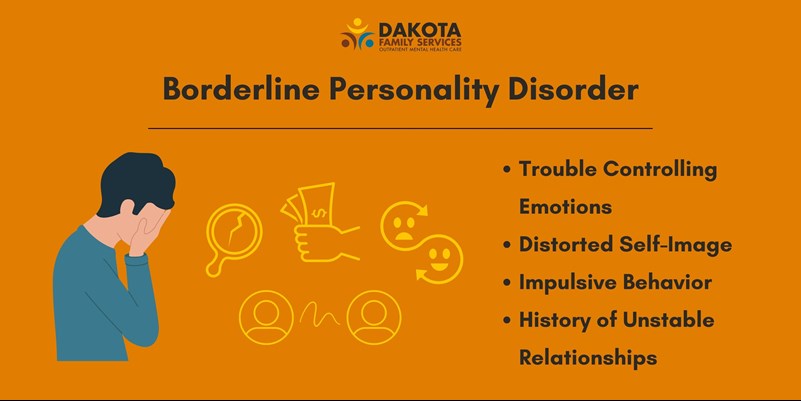Borderline Personality Disorder (BPD)
Definition
Borderline personality disorder (BPD) is a serious mental illness that generally develops during adolescence or young adulthood. People with BPD typically have a history of unstable relationships, distorted self-image, extreme emotions, and impulsive behavior. They also often have problems controlling their emotions and managing their anger, and can be impulsive, unstable, and moody—all of which can lead to problems with their relationships, work, or school.
Treatment involves medication and psychotherapy. Most people with BPD can lead normal lives, but treatment must be lifelong.
Key Things to Know About BPD
- Many people who have borderline personality disorder also suffer from depression, anxiety disorder, eating disorders, or substance abuse.
- A diagnosis of BPD is not a sentence to a life of pain, but rather an opportunity for effective treatment by a trained professional.
- Behaviors associated with a borderline personality disorder are often mistakenly viewed as primarily attention seeking. Although there can be attention-seeking components to the behaviors, it is more accurately viewed as maladaptive coping skills learned throughout life.


